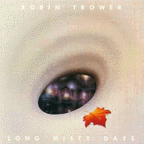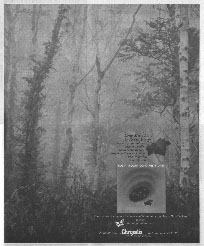- Home
- Introduction, Update Information, Links
- The Super Seventies "Classic 500"
- Readers' Favorite Seventies Albums
- Seventies Single Spotlight
- The Top 100 Seventies Singles
- Favorite Seventies Artists In The News
- Seventies Almanac - Year By Year
- Seventies Singles - Month By Month
- Seventies Albums - Month By Month
- Seventies Daily Music Chronicle
- Seventies Superstars In Their Own Words
- The Super Seventies Archives
- Seventies Trivia Quizzes & Games
- Seventies MIDI Jukebox
- The Super Seventies Bookstore
- The Super Seventies Photo Gallery
- Seventies' Greatest Album Covers
- Popular Seventies Movies & TV
- Seventies Celebrity Portrait Gallery
- Seventies Lyrics Hit Parade
- Top Seventies Artist Music Videos
- Seventies Usenet Music Forums
- Seventies Smiley Calendar
- EXTRA!
- Superseventies.com Facebook Page
- Superseventies.com Reddit Discussions
- The Super Seventies Blog
- Tweet The Seventies
- RockSite InfoBank
- Beatlefan Site
- Thanks For Your Support! / Top Sellers
- Search The Rock Site/ The Web

Long Misty Days
Robin Trower
Chrysalis CHR-1107
Released: September 1976
Chart Peak: #24
Weeks Charted: 19
Certified Gold: 12/13/76
The spartan nature of the three-piece rock band seems to lend itself most productively to blues-and guitar-centered styles, and for a while the Robin Trower band was a shining example of its possibilities. Unfortunately, each successive album has had less originality than its predecessor. Although it's been a while since the last studio release, Long Misty Days is their most anemic album yet.
The effective simplicity of "Man of the World" and "Lady Love" has turned into an hypnotic sameness. "Caledonia" seems little more than repetitious cymbal tapping and chk-chk guitar notches, with only bassist James Dewar's dramatic vocals worthy of note. Throughout the album Dewar's singing approaches the excellence of soulful rock vocalists like Paul Rodgers, and his hauntingly melancholic delivery on "I Can't Live Without You" combines with Trower's crying guitar for the album's finest cut. As in the past, Trower's soloing skills far exceed his ability to assist with the melody or rhythm, making the compositional weakness of "S.M.O." more limiting than need be.
"Long Misty Days" represents the Robin Trower band's most distinctive style. The musicians play as if in a dream, and Dewar's deep voice and carefully rhythmic phrasing enhance the song's slow-motion texture. Though effective, its close resemblance to "Bridge of Sighs" and "For Earth Below" suggests that Trower and Dewar's fixed pool of song ideas is their most serious limitation. Past criticism of Trower has dealt mainly with the obvious influence of Hendrix on his guitar style, and even though this is clearly not as justified as on the first two albums, the operative word remains imitation. Unfortunately, the self-imitation of Long Misty Days has far more disturbing implications. - Teri Morris, Rolling Stone, 12/2/76.
Bonus Reviews!
Robin Trower plays -- and his bassist sings -- very much in the style of Jimi Hendrix. Although the late Mr. Hendrix was an audacious and occasionally brilliant technician of the electric guitar, there was more sound than substance to his music (as he realized shortly before his death), so that a Hendrix emulator, -- even one as skilled and comfortable in the role as Trower -- doesn't have much to build on. Hendrix intended to try playing jazz, and had he done so -- as Jeff Beck has successfully done -- his career might have been more artistically rewarding; at least it would have been more challenging. But Trower is content to stay in the place Hendrix wanted to move away from: limbo.
- Joel Vance, Stereo Review, 2/77.
Trower's tight, hard-rocking and highly-electric trio has carved itself a mighty following in the U.S. with indefatigable touring and a string of energetic albums. The current product is Trower's first for Chrysalis since the label went independent, and it is clearly the big push project for Chrysalis throughout the rest of the year. Trower's guitar riffs are consistently powerful without being mindlessly splashy. He and his bassist/vocalist/cowriter James Dewar have come up with a good batch of fast and slow rockers that play to the trio's English metal strengths. Noteworthy as a commercial development is that the nine cuts are much shorter than has previously been the norm on this artist's albums, thus giving him a much more open shot at airplay. A number of established acts of this guitar-boogie ilk have tightened their formats and broken through to vast new mainstream audiences in recent years, Peter Frampton being perhaps the most spectacular example. There seems no reason why Trower couldn't follow this pattern if he simply hangs in there to keep doing more of what he's already shown he can accomplish. Best cuts: "Caledonia," "Messin' The Blues," "Long Misty Days," "Same Rain Falls."
- Billboard, 1976.
A good mix of down-and-dirty blues, it also features Trower's ethereal ballads.
- Michael P. Dawson, The All-Music Guide to Rock, 1995.
![]() Reader's Comments
Reader's Comments
No comments so far, be the first to comment .
![]() Main Page
| Readers' Favorites
| The Classic 500
| Other Seventies Discs
| Search The RockSite/The Web
Main Page
| Readers' Favorites
| The Classic 500
| Other Seventies Discs
| Search The RockSite/The Web




